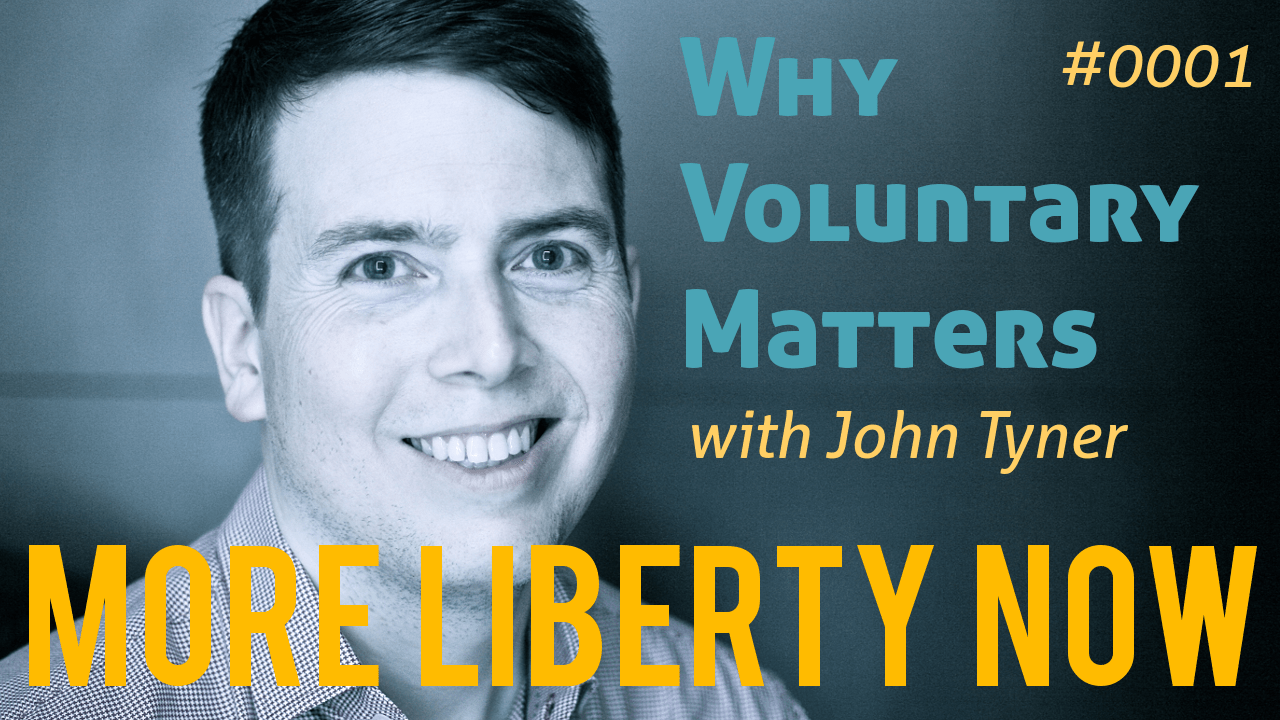What does ‘voluntary’ mean? According to Merriam-Webster, the first definition of ‘voluntary’ is “done or given because you want to and not because you are forced to : done or given by choice.”
This is the definition we’re talking about today. Voluntary things are things you do because you want to, because it makes you happy, because you have decided it is the best way forward for you, that it suits your self-interest or aligns with your principles.
Is it voluntary? This is rarely a question we ask of ourselves these days. It’s more common to ask, “Do I have to?” But it’s a question we need to ask ourselves more often, not just in political contexts but also in our personal lives.
Ask yourself, “Do I really want to?”, and, if not, then perhaps you should be making plans to get that activity out of your life once and for all. Life is short, after all and time is our most scarce asset.
Why does ‘voluntary’ matter? You are a sovereign and independent human being, capable of making the choices for your life and taking responsibility for those choices, no matter the outcome. Who is better qualified than you to make decisions for your life? No one.
Why are you the best qualified to make decisions for your life? Because you reap the benefits or suffer the consequences of your decisions. This direct connection between action and consequences is accountability. You are directly accountable for your actions. This enables you to learn from your decisions and make better ones in the future.
Is it voluntary or coerced? This question boils down to control. Who controls you? Are you in control? Do you make the decisions and carry the responsibility for them?
Or, is someone else dictating to you how to live your life? Is someone else in control of your life? If they are, then you need to give serious thought to getting that person, or group of persons, out of your life.
So what? What’s the big deal about things being voluntary or not? If you’re in control of your life, if you’re living a voluntary life, then you chart your course, you reap the benefits of your good decisions and pay the cost of your bad decisions.
But, if someone else is in control of your life, how can you be sure that they value your life as much as you do? You only get one life, after all. When someone else is in control of your life, they don’t bear the cost of the mistakes that happen in your life. You do. So there is no incentive for this controlling party to be responsible and careful with your life, your liberty and your property. The connection between action and consequences is broken. There is no accountability.
In other words, either your life is voluntary, or it’s a plaything for someone else. This someone else is probably profiting from you without assuming the risks. You assume the risks and you suffer. But you are deprived of the upside. In fact, because of the inherent inefficiencies of control, it’s likely that everyone is suffering from involuntary situations.
In the personal sphere, involuntary actions often happen between parents and children. Examples include:
- child abuse
- punishments for children
- telling a child what to do in a non-emergency situation instead of negotiating with the child
However, intimidation, bullying, domestic abuse, fraud, lying, deceit and outright physical aggression – violence that is not provoked – are also examples of coercion in the private sphere.
There are many more examples of involuntary actions in the public sphere of life, including:
- Compulsory schooling
- Taxation
- Laws and regulations promulgated by governments
- War and other military actions, such as drone strikes
- Government courts
- Government Police
- Federal Reserve Notes, that is, US dollars, especially government actions that devalue its purchasing power and attempts to quash competing currencies, such as the Liberty Dollar
Corresponding alternatives to these involuntary actions are:
- Unschooling and homeschooling instead of compulsory government and private schooling
- Donations and free trade instead of taxation
- Private contracts such as rental agreements, terms of service, purchasing food at the supermarket and buying something on Amazon instead of government laws
- Negotiation and nonviolence instead of military action
- Mediation and arbitration instead of government courts
- Private security instead of government police
- Bitcoin and silver and gold coins instead of Federal Reserve Notes
Will life as we know it fall apart without forcing people to do what we want on a daily basis? No. We are inherently and ultimately reasonable people. We can use voluntary agreements to achieve all of the ends we seek when we force other people to do what we think is best for them. In fact, by banishing coercion and insisting on only voluntary relationships, we can bring peace where there is conflict, achieve more together and honor human dignity across the globe.
A voluntary world works. And it is a bright and promising goal that humankind must assign a high priority in the 21st century if we wish to realize our potential and build a better world for ourselves and the coming generations.
Questions
Got a question about the More Liberty Now podcast? Tweet @MoreLibertyNow or with hashtag #MoreLibertyNow. You can also send an email to [email protected]. We love the hard questions so don’t hold back!
Downloadable Resource
Coming soon.
Subscribe
If you like the show, subscribe on iTunes or via email.
Support
If you enjoy the More Liberty Now Podcast, you can support us at MoreLibertyNow.com/support. Your support enables us to pay the bills, provide a higher quality podcast and reach more people with our practical and inspiring messages of liberty.
Show Notes
- http://www.urbandictionary.com/define.php?term=defooing
- http://www.merriam-webster.com/dictionary/voluntary
- http://bleedingheartlibertarians.com/2014/09/dont-lean-on-me-the-ethics-of-the-knee-defender/
- http://www.coindesk.com/crypto-2-0-roundup-bitcoins-revolution-moves-beyond-currency/
- http://www.bitnation.co/
- https://openbazaar.org/
